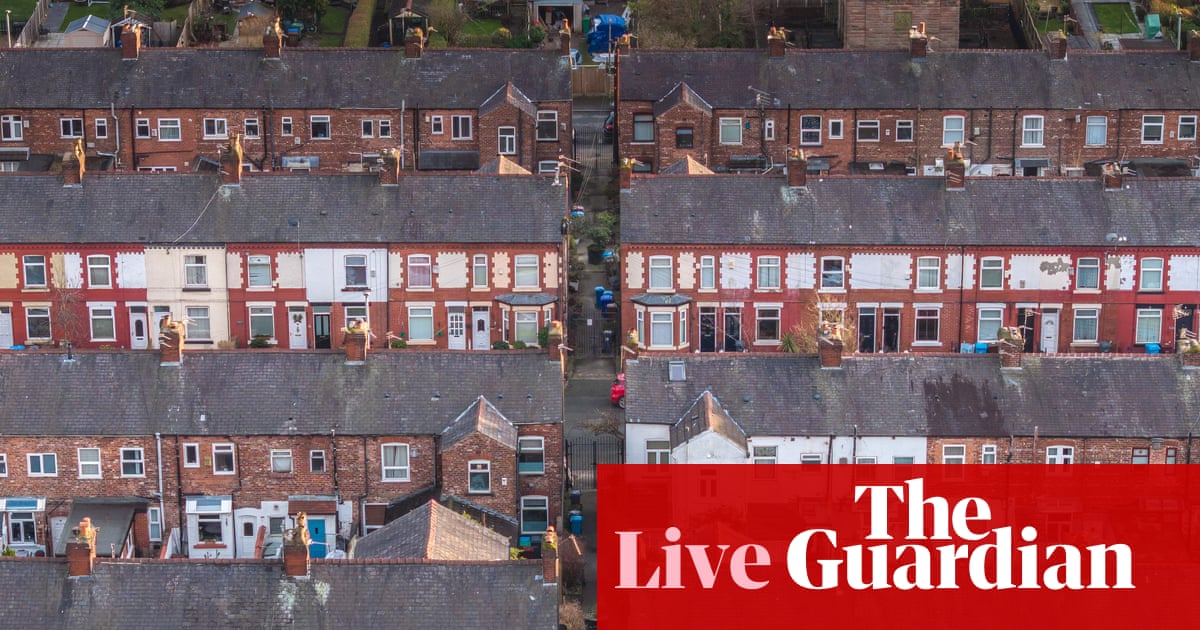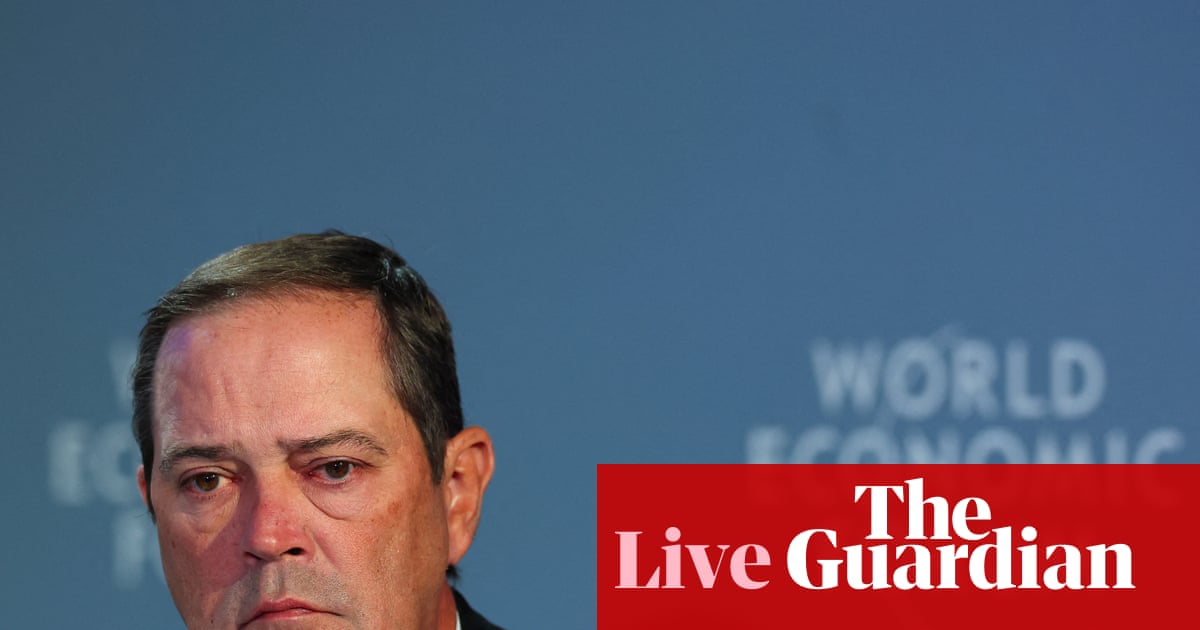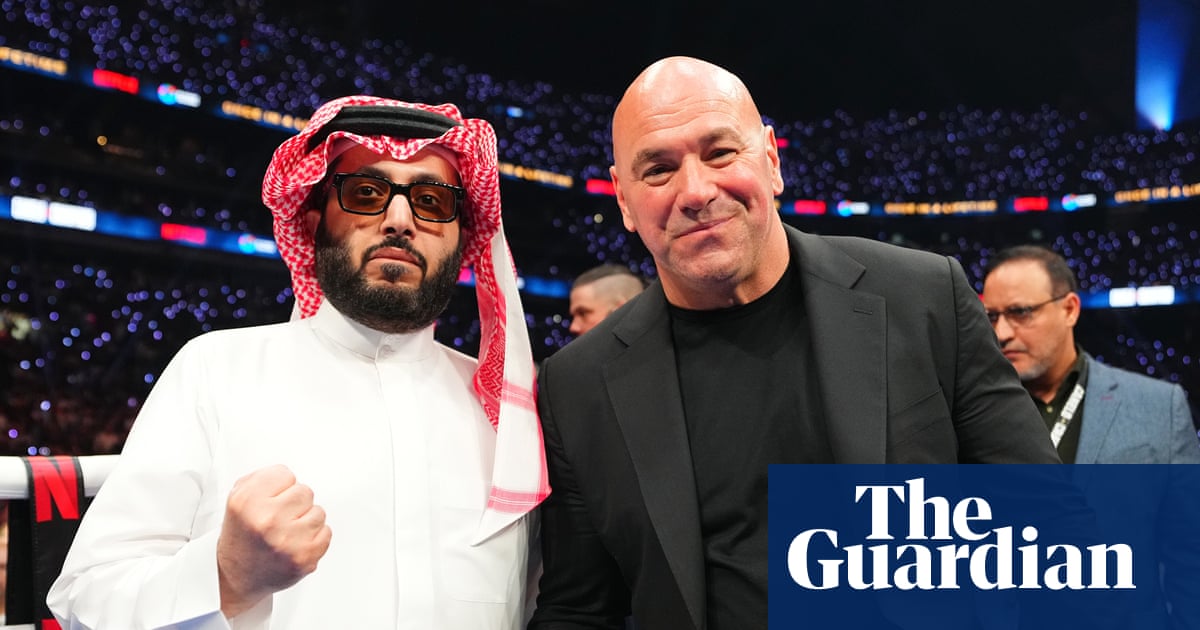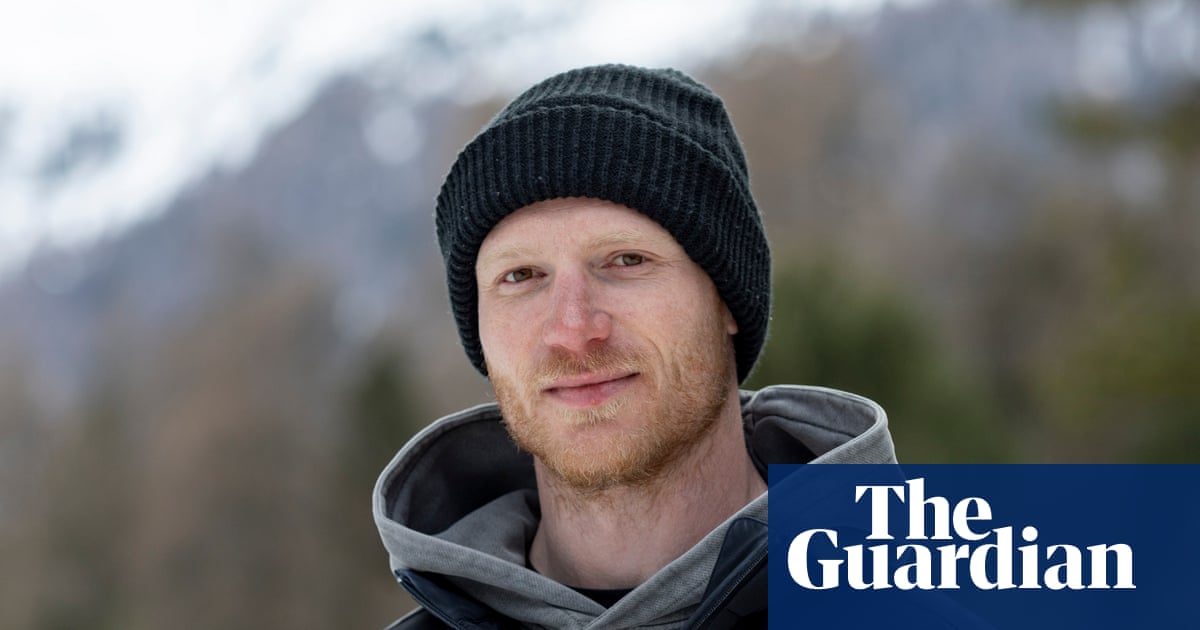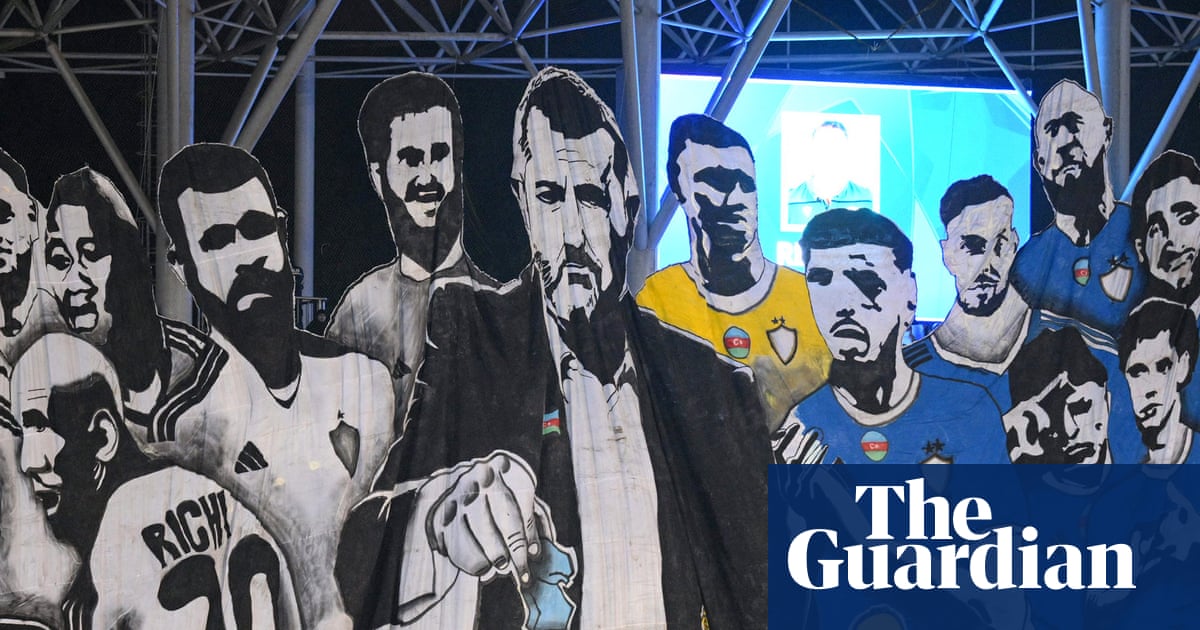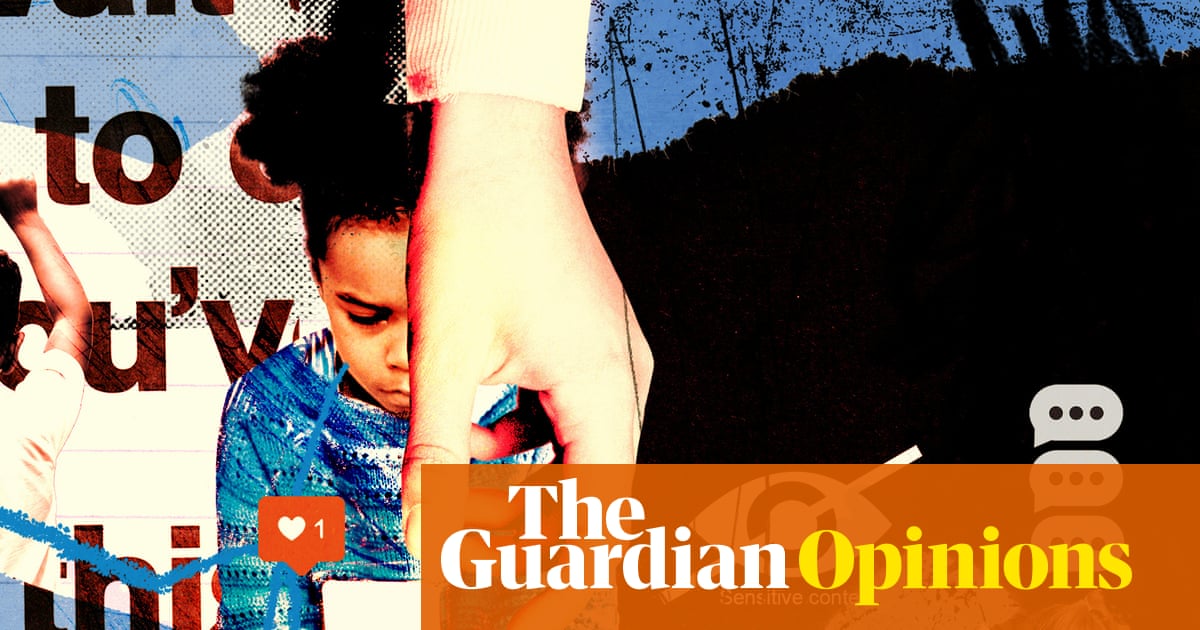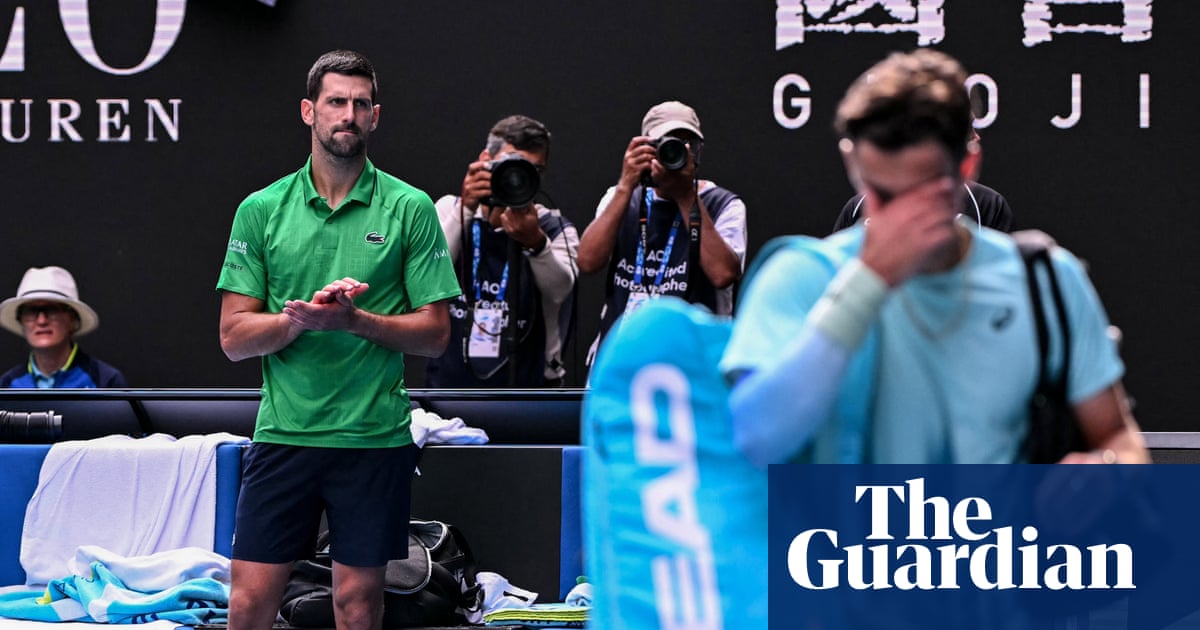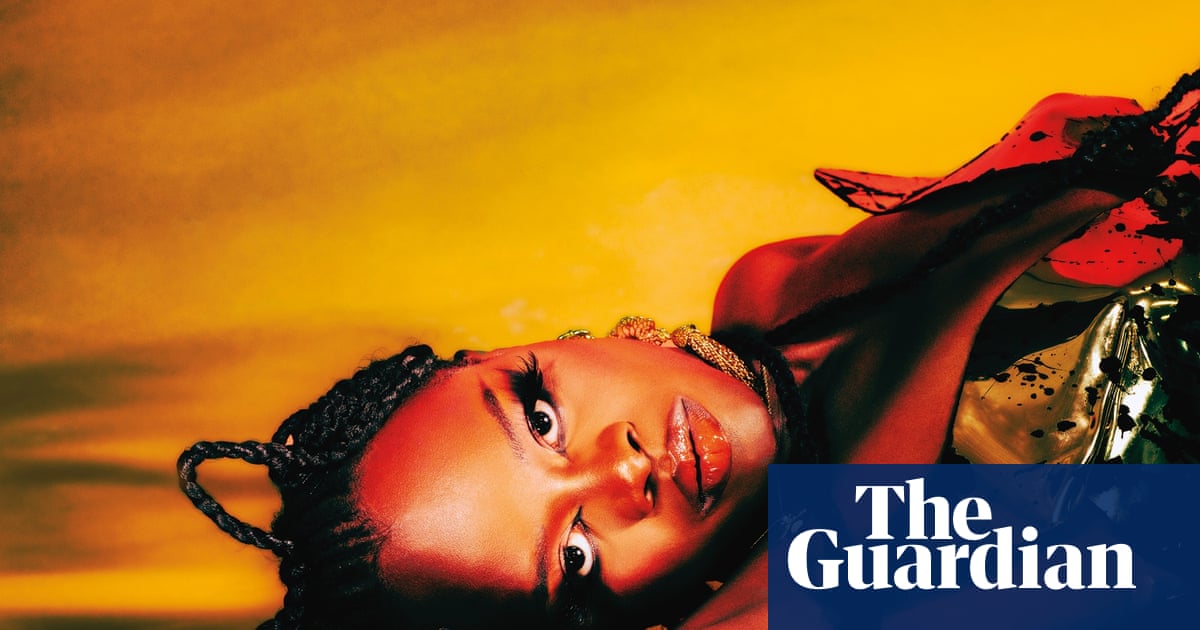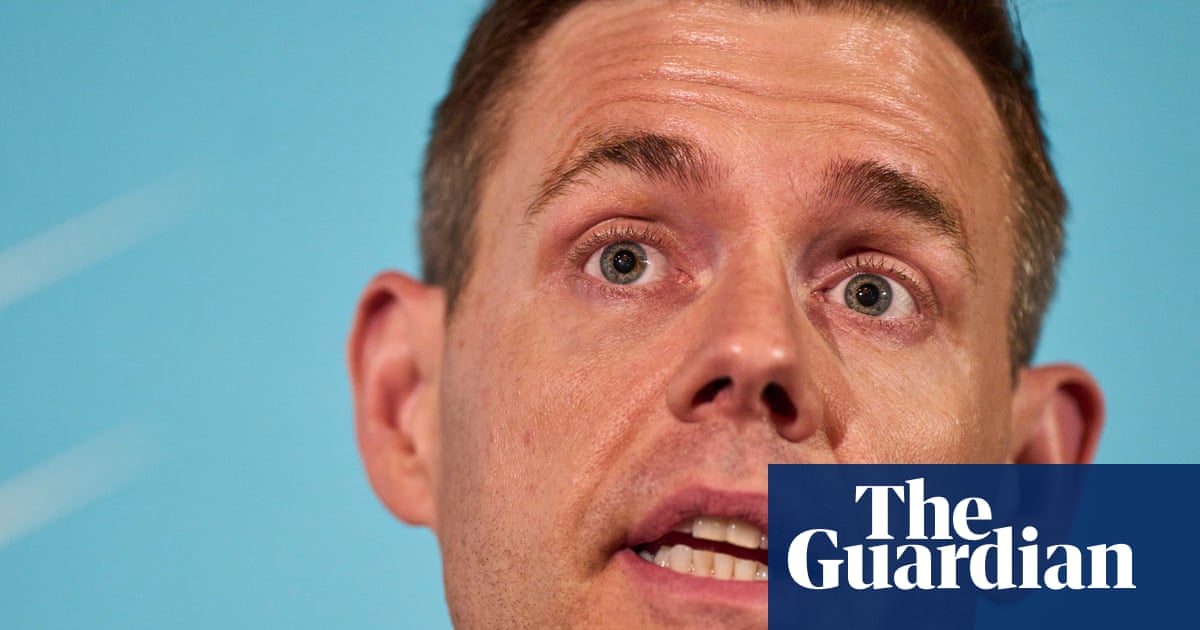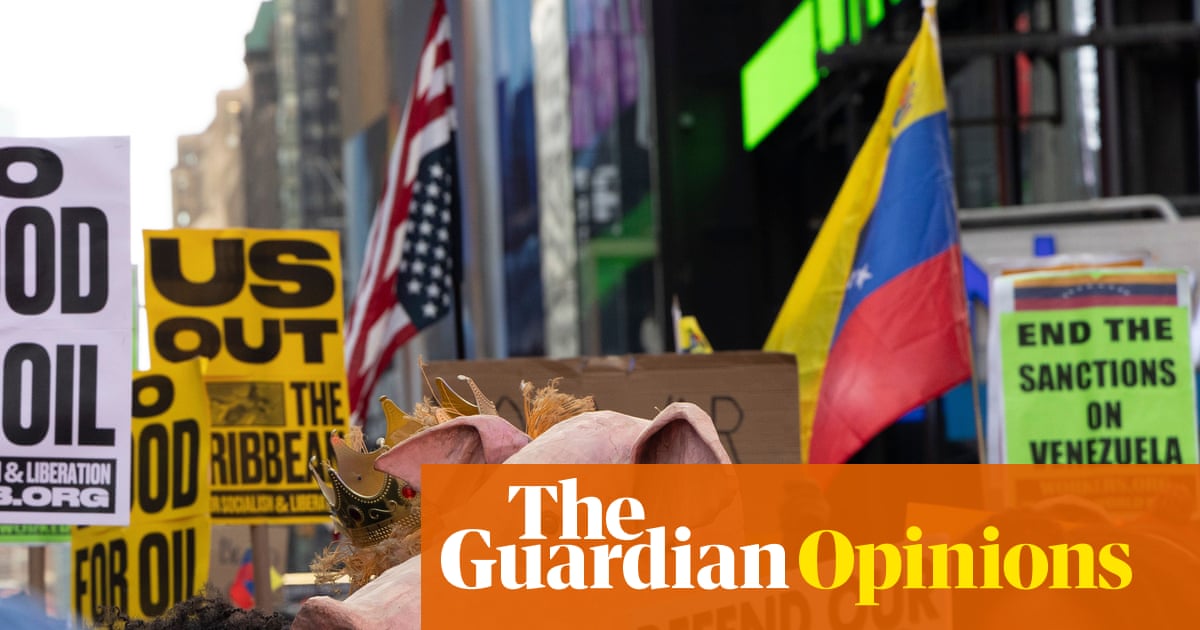Antony Njoroge paces back and forth, camera in hand, as people bombard him with questions. “What do we do with this? Where should I put it? The light’s better over here! Tony, one second please.” The film-maker and his co-producer Sally Ngoiri are putting the final touches to an event that they never imagined would actually come to life when they first thought up the idea back in May: the first fashion show to be staged in Gikomba, Nairobi, east Africa’s largest secondhand clothing market.
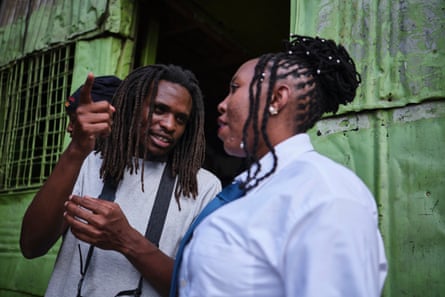
-
Show and documentary producers Antony Njoroge, left, and Sally Ngoiri
“I’m never getting myself into something like this again,” Njoroge says with a grin.
The Gikomba Fashion Show will feature in a documentary called Wasteland, which addresses the issue of mass importation of secondhand clothing – mitumba in Swahili – to Kenya but focuses on how local stylists and designers are giving those garments a second life and redefining their uses.

-
Stalls at Gikomba, the largest second-hand market in East Africa
“The idea comes from my personal experience as a citizen, seeing how my neighbourhood was getting dirtier. I saw how the Nairobi River often gets clogged with discarded clothes and plastic waste,” says Ngoiri. “I chose to tell this story in Gikomba because it’s where most of the mitumba ends up, but also to show locals that there are other ways of doing things.”
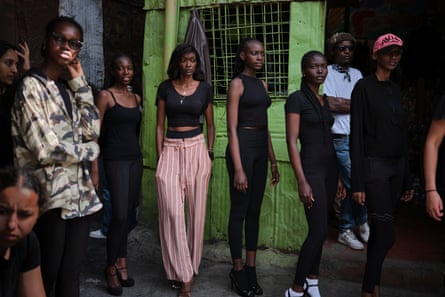
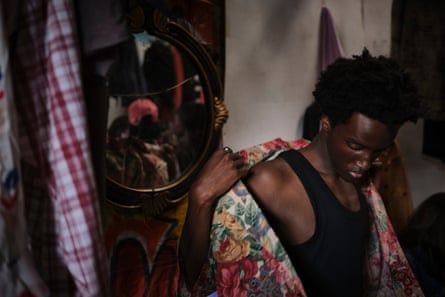
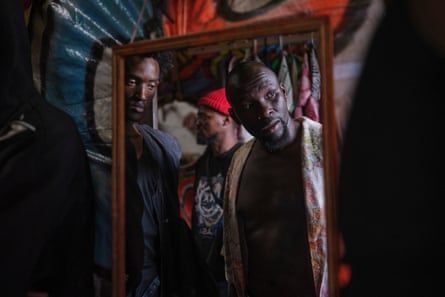

-
The producers hope to inspire people to give clothes a new life
Kenya imports more than 185,000 tonnes of secondhand clothing every year – yet up to 40% of it is unwearable, ending up in dumpsites instead of closets. The trailer for Wasteland begins by showing this “mountain of waste disguised as charity”. It is due to premiere in June at the Alliance Française in Nairobi.
The story follows Luca Wakarindi, a young entrepreneur who owns a secondhand store in Gikomba and shares her journey from thrifting to becoming a producer and fashion stylist, highlighting the importance of giving clothes a new life. “I want to show people that these clothes are not bad. We cannot – and we don’t want to – eradicate thrift, so we repurpose them, we refashion them.”
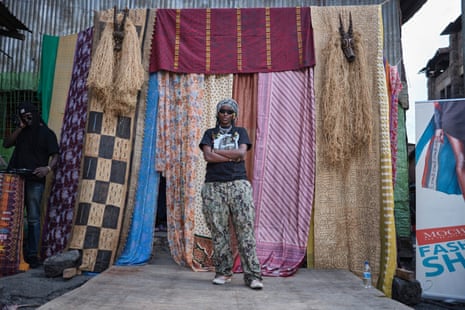
-
The documentary follows the story of Luca Wakarindi, pictured
However, Wakarindi explains, the ultimate goal of the project is to raise awareness about the urgent need for regulation. “When you include trash clothes in what you’re giving to charity, you’re already working against yourself. If out of five garments I can only use two and have to throw away the rest, then we need a new system to control what’s being imported into our country,” she says.
To achieve this, Njoroge and Ngoiri decided to organise a fashion runway in the heart of the market and invited various stakeholders – including Romain Boyer of of the French Embassy, , Alliance Française, the UN environment programme, Unicef and the National Environment Management Authority – to witness the magnitude of the problem first-hand: “We want to challenge them to take action to achieve regulation,” says Ngoiri.
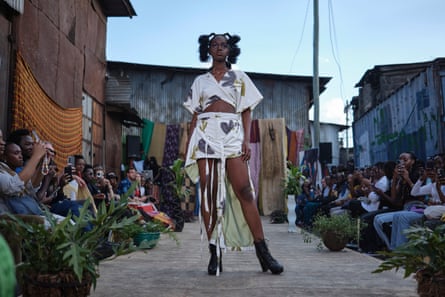


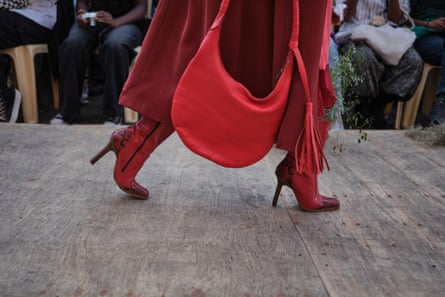
-
The benefits of thrifting multiply when creativity is encouraged, says stylist and creative director David Kimani
The impact is not limited to authorities, however, says Ngoiri. “When I was doing research for the documentary, I was surprised that people didn’t know they could recycle and upcycle clothes. They were telling me that sometimes they would buy a bale and 80% of it was not sellable, so they ended up making a loss and throwing it away. With Wasteland we want to show them that they can get creative too.”

-
Kimani adjusts an outfit on one of the models before the start of the runway
David Kimani, a creative director and stylist who works at Lucarindii – the store owned by Wakarindi that served as backstage for the runway, and where local fashion designers work for the film and music industry – says the benefits of thrifting can multiply when creativity is encouraged. “I was buying clothes and my friends were telling me I look fresh. You see? I started styling myself, then I styled my homies, and now I style artists and models. We are turning trash into fashion.”

-
‘We are turning trash in to fashion,’ says David Kimani

 3 months ago
47
3 months ago
47
